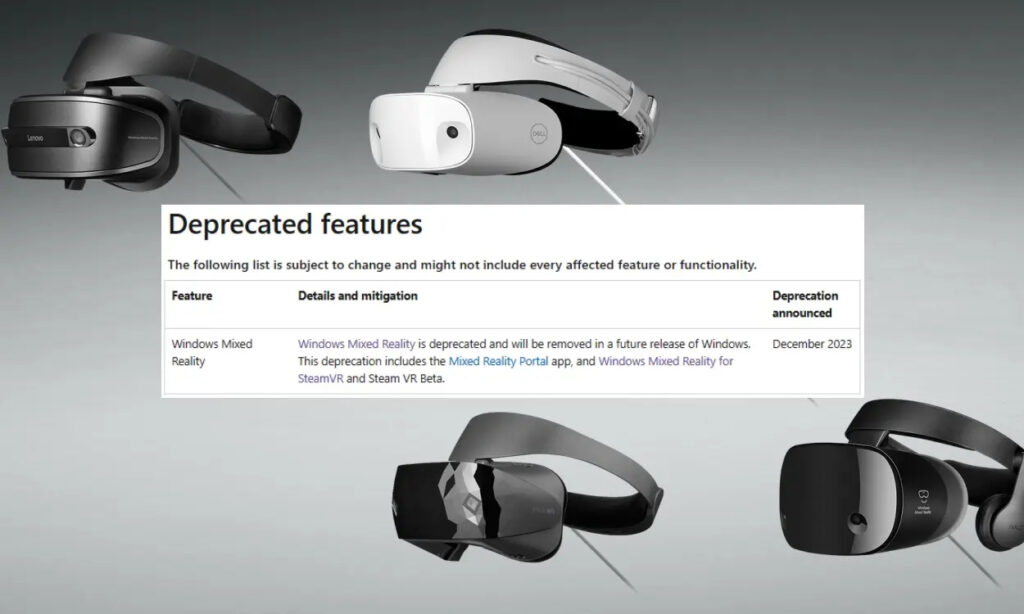
Microsoft’s immersive virtual reality experience through its Mixed Reality headsets is coming to an end. Customers who invested in VR headsets, often priced at several hundred dollars, are now facing the abrupt announcement that “Windows Mixed Reality is deprecated and will be removed in a future release of Windows.”
This information originates from the official Microsoft blog, outlining the deprecated features of the Windows 11 operating system. When a feature is labeled as ‘deprecated’ by Microsoft, it essentially becomes outdated. The discontinuation of the Windows Mixed Reality platform also encompasses the Mixed Reality Portal app.
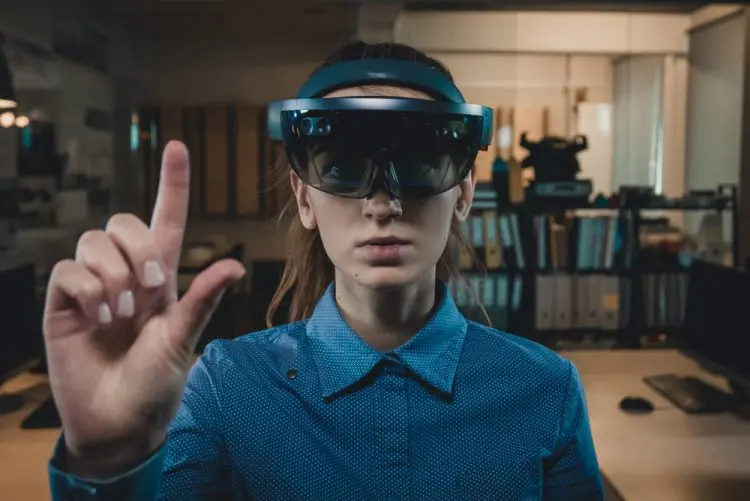
Additionally, the app facilitating the connection between Windows Mixed Reality VR Hardware and the SteamVR platform is also slated for deprecation. This development raises significant concerns for Microsoft’s Mixed Reality and the considerable investment users have made in expensive VR hardware.
For users who prefer not to utilize the Mixed Reality platform but still wish to use their VR headset for SteamVR gaming, the future appears challenging on the latest version of Windows 11. Essentially, the discontinuation of Windows Mixed Reality signifies a significant shift in Microsoft’s VR landscape.
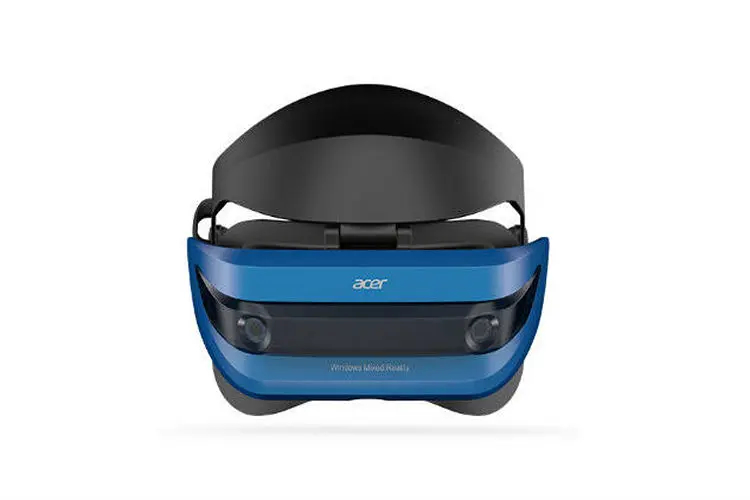
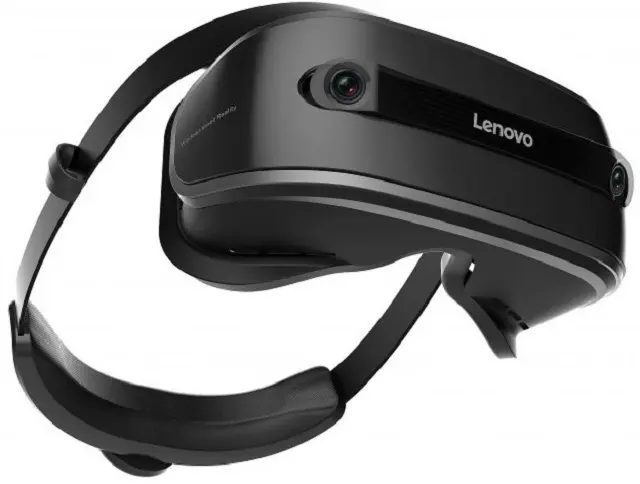
As per Microsoft’s announcement, Windows Mixed Reality is slated for removal in an upcoming Windows release. Therefore, if you’re a SteamVR user utilizing any brand’s Windows Mixed Reality VR headset, it’s advised not to update to the latest Windows 11 version.
Updating could render your Windows Mixed Reality VR headset essentially unusable. While avoiding the latest Windows updates might pose certain risks, this cautionary step is the current situation for users dependent on Windows Mixed Reality for their VR experiences.
Windows Mixed Reality Still Popular Among VR Gamers for SteamVR
The abrupt decision by Microsoft to eliminate the Mixed Reality platform in an upcoming Windows update is likely to disappoint numerous users. According to the last Steam hardware survey, 5.18% of SteamVR users rely on Windows Mixed Reality VR headsets.
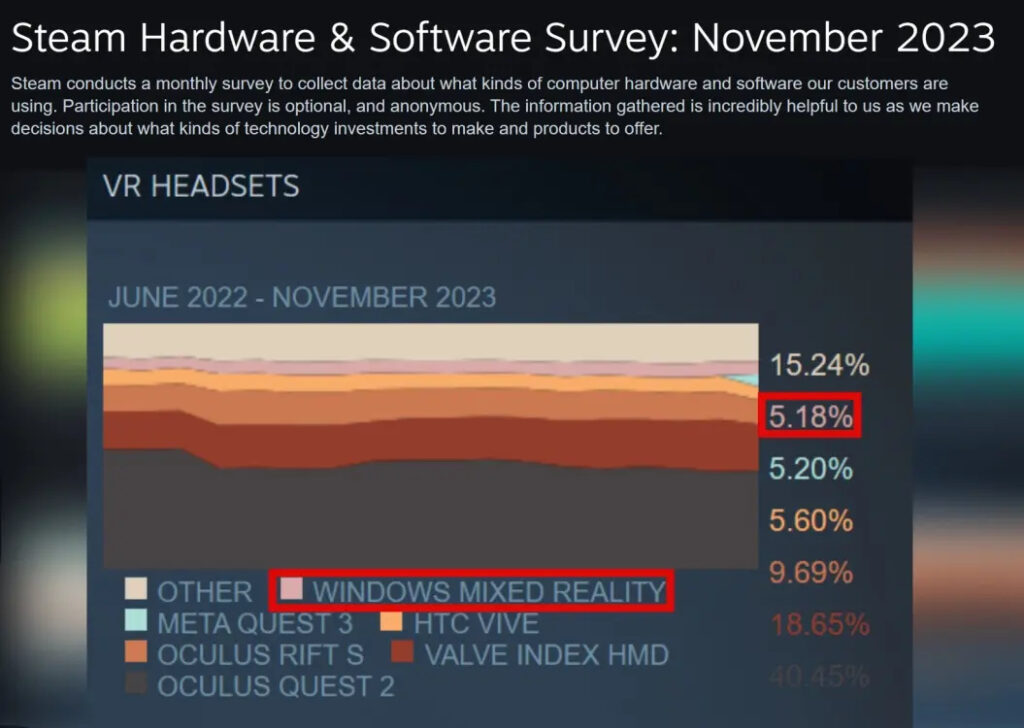
The Mixed Reality platform encompassed several manufacturers, resulting in a diverse range of VR hardware with varying specifications. Major OEMs like Acer, ASUS, Samsung, Dell, and HP were active participants in this ecosystem. Moreover, premium offerings such as the HP Reverb G2 and Samsung Odyssey added to the platform’s appeal.
The 5.18% figure essentially encompasses all users of Mixed Reality VR headsets. It remains uncertain whether a replacement for the Mixed Reality app is in development. However, there might still be a way to sustain functionality by leveraging the Mixed Reality SteamVR application.
Maintaining Usage of Mixed Reality VR Headset for SteamVR Post-Deprecation
To continue using your Mixed Reality VR headset for SteamVR, refraining from updating your Windows system is advised. Microsoft’s blog containing guides for Mixed Reality setup remains accessible. Additionally, the Windows Mixed Reality for SteamVR app can still be found on the Steam Store. Compatibility for Windows Mixed Reality is listed for the following operating systems:
- Windows 10: Versions 20H2, 21H1, and 21H2.
- Windows 11: Versions 21H2 and 22H2.
Microsoft’s sudden discontinuation of its Mixed Reality platform is certainly disappointing for users invested in this VR ecosystem. Sticking to specific Windows 10/11 builds seems to be the only way for Windows Mixed Reality users to continue using their VR headsets, despite the absence of system updates.
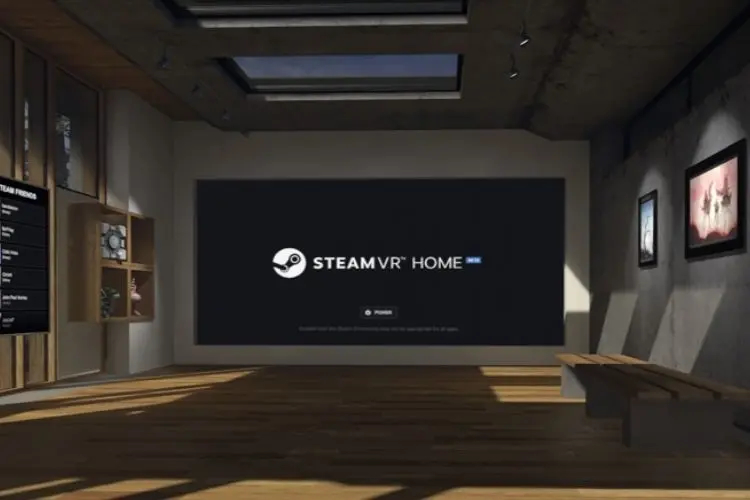
It’s understandable to feel frustrated, especially if you’ve personally experienced the potential and affordability of the Mixed Reality platform. Despite its limitations, devices like the Dell Visor Mixed Reality VR headset, priced at $300, offered impressive experiences.
Microsoft’s move to phase out Mixed Reality, which aimed to create an accessible VR platform with budget-friendly headsets, indeed leaves enthusiasts and users in a challenging position. This shift in strategy comes at a time when the VR landscape is evolving, including the emergence of competing technologies like Apple’s Vision Pro. If you’ve been impacted by this change, feel free to share your experiences in the comments below!

0 Comments